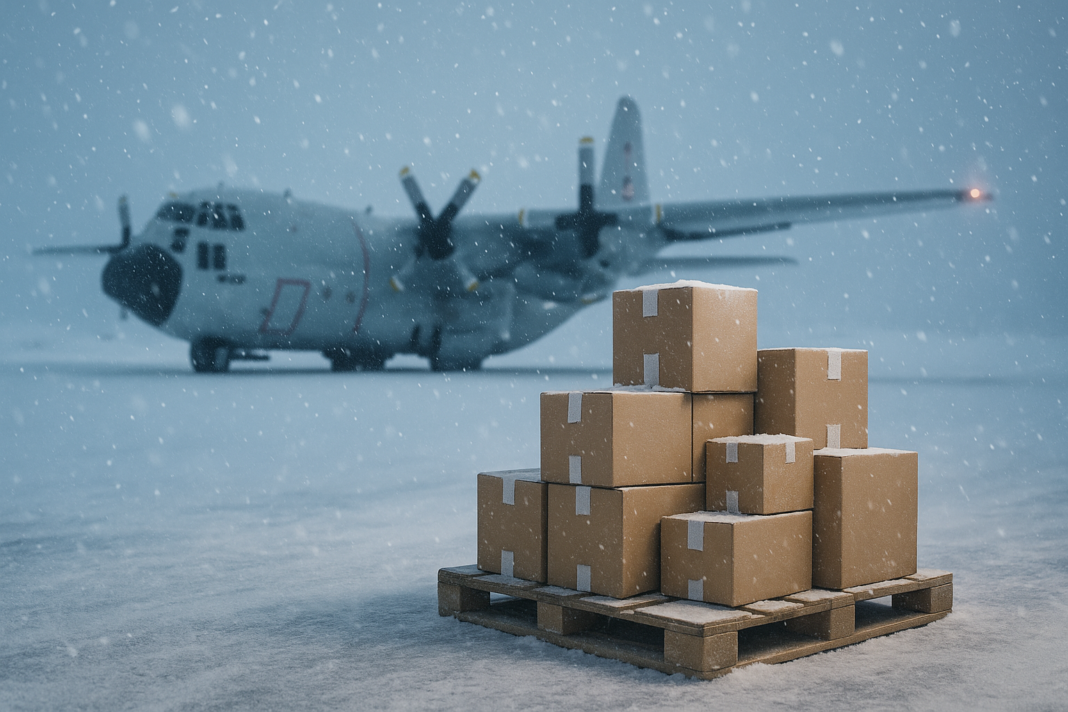
Antarctic Delivery Odyssey
Seamless Tracking from Anywhere
Whether you’re sending a postcard from San Francisco or monitoring essential research gear bound for a remote Antarctic station, real-time visibility is critical. With a single lookup via https://trackingpackage.com/, every status update—from warehouse departure to customs clearance, flight manifest scans, and final handoff—appears in one cohesive dashboard. Automated alerts inform both sender and recipient of delays, route deviations, or successful delivery, while intelligent filters let you flag high-priority shipments or unusual hold-ups. Global carrier integration ensures that even legs traversed by ice-runway flights or tracked vehicles over frozen terrain are captured without manual effort. By transforming complex, multi-stage itineraries into a transparent experience, this platform sets the standard for dependable parcel tracking.
Preparing the Journey
The adventure begins long before a postcard reaches Antarctic ice. In New York City, senders drop letters at USPS outlets or schedule pickups, triggering the first scan events in domestic sorting centers. Next, mail and cargo converge at regional hubs—often in Miami or Los Angeles—for consolidation. There, cartons of scientific instruments, medical supplies, and personal mail receive standardized barcodes and enter logistics software that syncs with flight planners and overland transport coordinators. Even at this early phase, the ability to preview departure slots, runway availability, and customs processing times offers peace of mind to senders and researchers alike.
Flight to the Ice
Cargo bound for Antarctica typically departs from major gateways such as Christchurch, New Zealand or Punta Arenas, Chile. Specialized aircraft—Lockheed LC-130s equipped with skis—navigate unpredictable polar weather, ice fog, and fierce crosswinds. Before each takeoff, ground crews complete thorough inspections of manifests, weight distribution, and de-icing procedures. Every load event, departure scan, and arrival confirmation feeds into the global tracking network. Some carriers transmit scan data in real time via satellite links, while others update upon landing. Regardless, the continuous log of checkpoints assures senders that their mail is progressing even when temperatures plunge below –50 °F.
Field Operations and Overland Transport
Upon touchdown at Williams Field—McMurdo Station’s airstrip—cargo transitions from aircraft to rugged ground vehicles. Tracked “Big Red” tractors and PistenBully snow groomers tow insulated sleds across glacial expanses toward the main base. Drivers navigate crevasse fields and sastrugi ridges, guided by GPS units and environmental sensors that relay location, speed, and temperature back to logistics teams. Each telemetry update supplements traditional postal scans, painting a detailed picture of the journey. This level of granularity proves invaluable when parcels contain sensitive biological samples or temperature-controlled reagents.
Arrival at McMurdo Station
After days of air and ice travel, mail convoys reach the solitary postal shelter at McMurdo Station. Researchers and support staff gather at the mail facility—often likened to an oasis of civilization amid the ice—to collect incoming correspondence and packages. Station personnel perform final barcode scans, logging each item into their local inventory system. Incoming mail racks sit beside scientific instruments, and every letter or parcel becomes a welcome link to family, collaborators, and the wider world. Thanks to end-to-end scan logs, senders can confirm exact delivery dates and customs clearances, removing uncertainty about when loved ones or critical supplies will arrive.
Postal Operations in Extreme Cold
Maintaining postal services in Antarctica demands specialized adaptations. Mailboxes and sorting tables are housed within heated shelters to prevent frost damage, while barcode labels are printed on weather-resistant vinyl to withstand moisture and abrasion. Handheld scanners feature reinforced seals and temperature-tolerant batteries, ensuring reliability in subzero conditions. Even date-stamp ink is engineered to dry instantly on cold surfaces. These measures guarantee that every scan—whether at a U.S. sorting facility or on the ice—is accurate and legible, preserving the integrity of a shipment’s history from origin to endpoint.
Communication Across Time Zones
Coordinating Antarctic deliveries requires careful synchronization across multiple time zones and operational calendars. When a sender in Washington, D.C., schedules a dispatch, they align it with flight windows departing Christchurch, which in turn sync with the station’s summer research season. Modern tracking platforms convert each timestamp into localized timelines for every stakeholder. Automated notifications respect night-shift hours at McMurdo, ensuring station teams receive updates during their active work periods. By harmonizing these conversions and delivery alerts, the system bridges hemispheres and seasons, turning a convoluted schedule into a clear, actionable roadmap.
Antarctic Mail as a Symbol of Connection
A simple postcard may seem modest next to high-tech research equipment, yet it embodies the human desire for connection across extreme distances. Each stamped envelope undertakes a journey over oceans, ice shelves, and scientific outposts. Through meticulous scanning and digital integration, senders witness every checkpoint, while recipients enjoy the reassurance that their message has braved one of the planet’s harshest environments. For researchers at McMurdo Station, mail delivery punctuates long hours of isolation with reminders of family, friends, and global support.
Reliable tracking and resilient logistics infrastructure ensure that even the most remote postal box remains within reach. Companies and individuals alike can trust that, no matter how far south the destination, every parcel’s journey is visible, verifiable, and guided by cutting-edge tracking technology.
Popular Categories





